The Muslim world has often been a bridge between East and West, but many of Islam’s crucial innovations are hidden within the folds of history.
Part of the Middle East and South Asia/Arabic Language and Culture Kit
The Muslim world has often been a bridge between East and West, but many of Islam’s crucial innovations are hidden within the folds of history.
Part of the Middle East and South Asia/Arabic Language and Culture Kit
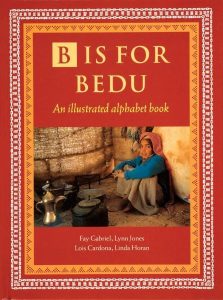 The Bedu way of life in Arabia has existed for thousands of years, yet, as these remarkable nomadic people have disappeared to the cities, so has our knowledge and understanding of them. In B is for Bedu, fascinating photographs that reveal an almost forgotten heritage support the letters of the alphabet. Constantly moving to find grazing for their animals, tending their flocks in the vast, empty land, and weaving beautiful patterns for their houses of hair, the wonder of the Bedu is that they managed to survive in the harsh desert environment.
The Bedu way of life in Arabia has existed for thousands of years, yet, as these remarkable nomadic people have disappeared to the cities, so has our knowledge and understanding of them. In B is for Bedu, fascinating photographs that reveal an almost forgotten heritage support the letters of the alphabet. Constantly moving to find grazing for their animals, tending their flocks in the vast, empty land, and weaving beautiful patterns for their houses of hair, the wonder of the Bedu is that they managed to survive in the harsh desert environment.
Part of the Middle East and South Asia/Arabic Language and Culture Kit
“Usha lives in a town where the sun hasn’t shone for as long as anyone can remember. Only her grandfather remembers its brilliance, and tells Usha stories about the time before other people took the sun away, building a wall to keep it all to themselves. So Usha decides to do something, and sets off in search of the sun. When at last Usha reaches the wall, she tries to kick it down, climb it, yell her way through it-but the bricks don’t budge. It’s only after hearing voices on the other side of the wall that Usha changes her plan. She sings, shares her grandfather’s stories, and piques the curiosity of the people on the other side until they are inspired to remove the bricks, one by one. Together, they bring the wall down. Inspired by the idea of peaceful protest, this book offers a timely message of cooperation and empathy”–
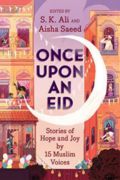
Once Upon an Eid is a collection of short stories that showcases the most brilliant Muslim voices writing today, all about the most joyful holiday of the year: Eid! Eid: The short, single-syllable word conjures up a variety of feelings and memories for Muslims. Maybe it’s waking up to the sound of frying samosas or the comfort of bean pie, maybe it’s the pleasure of putting on a new outfit for Eid prayers, or maybe it’s the gift giving and holiday parties to come that day. Whatever it may be, for those who cherish this day of celebration, the emotional responses may be summed up in another short and sweet word: joy. The anthology will also include a poem, graphic-novel chapter, and spot illustrations.
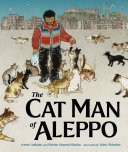
The courageous and true story of Mohammad Alaa Aljaleel, who in the midst of the Syrian Civil War offered safe haven to Aleppo’s abandoned cats. Aleppo’s city center no longer echoes with the rich, exciting sounds of copper-pot pounding and traditional sword sharpening. His neighborhood is empty–except for the many cats left behind. Alaa loves Aleppo, but when war comes his neighbors flee to safety, leaving their many pets behind. Alaa decides to stay–he can make a difference by driving an ambulance, carrying the sick and wounded to safety. One day he hears hungry cats calling out to him on his way home. They are lonely and scared, just like him. He feeds and pets them to let them know they are loved. The next day more cats come, and then even more! There are too many for Alaa to take care of on his own. Alaa has a big heart, but he will need help from others if he wants to keep all of his new friends safe.
The Cat Man of Aleppo is a WOW Recommends: Book of the Month for May 2021.
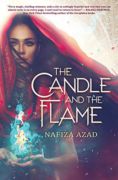
Azad’s sumptuous debut YA fantasy is set in a city along the Silk Road that is a refuge for those of all faiths, where a young woman is threatened by the war between two clans of powerful djinn.
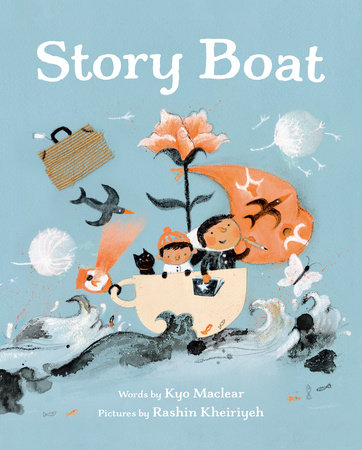 When a little girl and her younger brother are forced along with their family to flee the home they’ve always known, they must learn to make a new home for themselves — wherever they are. And sometimes the smallest things — a cup, a blanket, a lamp, a flower, a story — can become a port of hope in a terrible storm. As the refugees travel onward toward an uncertain future, they are buoyed up by their hopes, dreams and the stories they tell — a story that will carry them perpetually forward.
When a little girl and her younger brother are forced along with their family to flee the home they’ve always known, they must learn to make a new home for themselves — wherever they are. And sometimes the smallest things — a cup, a blanket, a lamp, a flower, a story — can become a port of hope in a terrible storm. As the refugees travel onward toward an uncertain future, they are buoyed up by their hopes, dreams and the stories they tell — a story that will carry them perpetually forward.
This timely, sensitively told story, written by multiple award–winner Kyo Maclear and illustrated by Sendak Fellowship recipient Rashin Kheiriyeh, introduces very young readers in a gentle, non-frightening and ultimately hopeful way to the current refugee crisis.
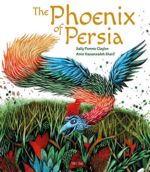
Retold for a modern audience, the story of The Phoenix of Persia is one of the ancient epic stories of Shahnameh (The Book of Kings) by the 10th century poet Ferdowsi, reminiscent of the classic fairytale Snow White and the Seven Dwarves. In this ancient Persian, a king awaits the birth of his son but when the child is born with white hair and skin, he is banished to the forest. The young babe is brought up by the phoenix Simorgh until his father realizes the love he has lost and seeks his return. A QR code is included to download Iranian music to accompany the text.
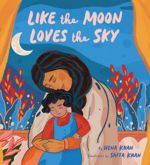
Illustrations and prose inspired by the Quran celebrate a mother’s love and hopes for her child.
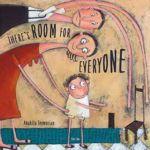
A child grows and discovers the world. As he lies awake at night, he sees there’s enough room in the sky for all the stars and the moon. When he visits the ocean, he sees there is enough room for all the fish, even for the whales. As he grows up, he doesn’t understand why people fight for space.